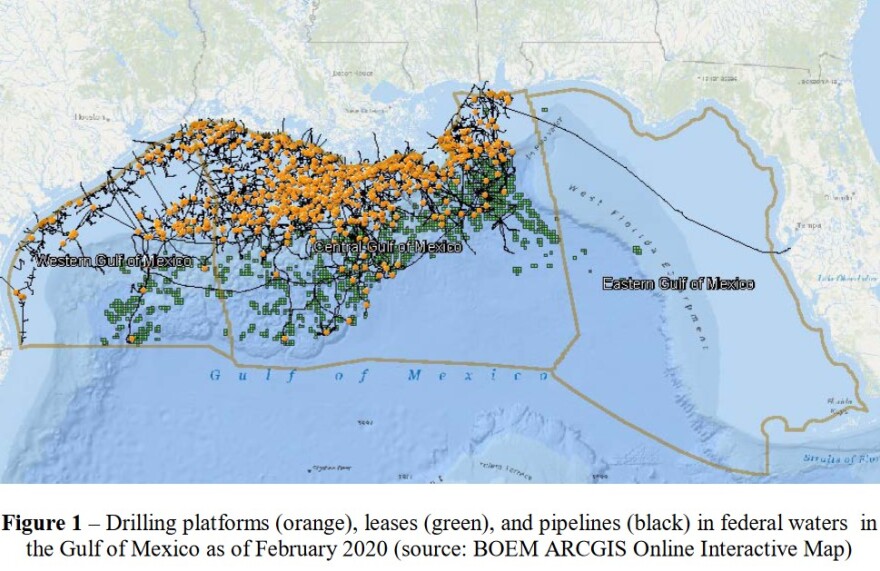You won't see any oil derricks soon sprouting from Florida's Gulf coast. That's because President Biden has made oil and gas drilling there off-limits, making what had been a temporary ban in some places permanent.
Drilling for oil and gas had already been banned in much of the Gulf off the coast of Florida, but that would have expired in certain areas in 2032. There has been bipartisan support for a permanent ban, but it hasn't gotten much traction in Congress.
Stephannie Kettle, with the Florida office of the nonprofit environmental group Healthy Gulf, said there would be too much at stake for the state's beaches and sports fishing.
“Decades of Floridians wanting their coastlines to be protected, remain pristine as possible, not have the sight of offshore drilling, even visible from our coastline like it is in other states, continuing to protect all of our natural resources,” Kettle said. “It's extremely important for us to continue to have these long-term protections."
It's part of 625 million acres President Biden protected off the U.S. East coast, the Pacific off the coasts of Washington, Oregon and California, and parts of the Northern Bering Sea in Alaska.
READ MORE: Biden makes an 11th-hour move to block coastal oil drilling
"Nearly 40% of Americans live in coastal counties that rely on a healthy ocean to thrive," the White House said in a prepared statement. "With today’s action, President Biden is ensuring that these regions can remain healthy and safe from the risk of oil spills resulting from development that would do little, if anything, to meet the nation’s energy needs."
Incoming President Trump has vowed to overturn Biden's executive order. But a recent court ruling did not grant the president that authority, so overturning it would likely take an act of Congress.
“It's under the Outer Continental Shelf Lands Act that this action was taken under,” Kettle said, “and so once those areas are set aside, it's extremely difficult for someone in the future to remove them.”
She said that drilling could threaten the livelihoods of people who are employed in the state's tourism and coastal fishing economies.
The American Petroleum Institute suggested that reversing this "politically-motivated" action should be a top priority for Congress.
"American voters sent a clear message in support of domestic energy development, and yet the current administration is using its final days in office to cement a record of doing everything possible to restrict it," institute president Mike Sommers said in a statement.
In March, U.S. Rep. Kathy Castor, D-Tampa, and Rep. Vern Buchanan, R-Bradenton, reintroduced the bipartisan Florida Coastal Protection Act to make permanent the moratorium on oil drilling off Florida’s coast.
“Clean water and clean beaches are central to Florida’s healthy environment, economy and way of life," Castor wrote in an email. "Floridians voted in 2018 to prohibit oil drilling in state waters (only nine miles offshore), but oil and gas companies still had their eyes on federal waters in the eastern Gulf. I ran for Congress to champion permanent coastal protections and to keep oil drilling away from Florida, so I am thrilled that President Joe Biden answered our call to ban drilling off the Florida Gulf Coast and thereby safeguard our communities, fishing and tourism economies."
Still, the ban is not enough, said Healthy Gulf Executive Director Martha Collins, who lives in St. Petersburg.
"We are disappointed that President Biden did not take this opportunity to withdraw additional areas in the Gulf of Mexico, particularly the risky deepwater regions and the western Gulf,” Collins said. "These areas remain vulnerable to catastrophic oil spills. We cannot allow any more communities to suffer the devastating consequences of offshore drilling."
Information from National Public Radio was used in this report.





